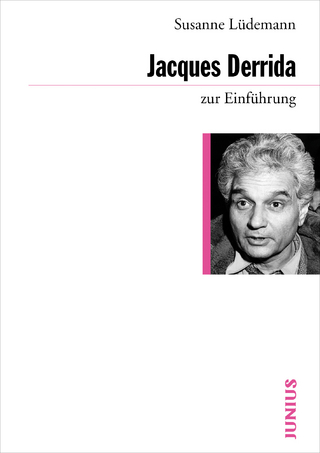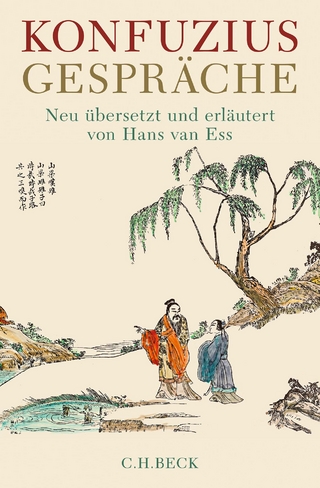
Neo-Confucian Ecological Humanism
State University of New York Press (Verlag)
978-1-4384-6454-1 (ISBN)
In this novel engagement with Ming Dynasty philosopher Wang Fuzhi (1619–1692), Nicholas S. Brasovan presents Wang's neo-Confucianism as an important theoretical resource for engaging with contemporary ecological humanism. Brasovan coins the term "person-in-the-world" to capture ecological humanism's fundamental premise that humans and nature are inextricably bound together, and argues that Wang's cosmology of energy (qi) gives us a rich conceptual vocabulary for understanding the continuity that exists between persons and the natural world. The book makes a significant contribution to English-language scholarship on Wang Fuzhi and to Chinese intellectual history, with new English translations of classical Chinese, Mandarin, and French texts in Chinese philosophy and culture. This innovative work of comparative philosophy not only presents a systematic and comprehensive interpretation of Wang's thought but also shows its relevance to contemporary discussions in the philosophy of ecology.
Nicholas S. Brasovan is Assistant Professor of Philosophy and Religion at the University of Central Arkansas.
Acknowledgments
Abbreviations
Introduction
Thesis
Interpretive Methodology
Biographical Introduction to Wang Fuzhi
Significance, Symbolism, and Strata of the Yijing
Disambiguating Ecological Humanism
Synopsis
1. Natural Cosmology
Creationism as Antithesis
Tian qua Nature
Neo-Confucian Terminology of Cosmic Creativity
2. Complex Systems and Patterns of Energy
A Perspective from Ecosystems Ecology
Nature as Patterns of Energy
From “Simple” to “Complex” Materialism
3. Reading the Yijing from an Ecological Perspective
Holistic Hermeneutics
Cosmography of the Yijing
Practical Knowledge through Comprehensive Observation
4. Between Nature and Persons
Humanizing Nature in Ecological Humanism
Humanizing Nature in Chinese Philosophy
Between Persons and Nature
Wang Fuzhi’s Critique of Orthodox and Heterodox Doctrines
Mencius’s Heart-and-Mind and the Human Experience
5. Identifying Religiosity in Wang Fuzhi’s Neo-Confucianism
Ritual Propriety as Humanizing Nature
Immanence of Persons-in-the-World
Procreativity in the Yijing
Experiencing the Sublime in Nature
6. Conclusion
Summarizing Reflections
Application of a Theory
Notes
Glossary of Key Chinese Terms
Bibliography
Index
| Erscheinungsdatum | 15.12.2021 |
|---|---|
| Reihe/Serie | SUNY series in Chinese Philosophy and Culture |
| Zusatzinfo | Total Illustrations: 1 |
| Verlagsort | Albany, NY |
| Sprache | englisch |
| Maße | 152 x 229 mm |
| Gewicht | 227 g |
| Themenwelt | Geisteswissenschaften ► Philosophie ► Östliche Philosophie |
| Geisteswissenschaften ► Religion / Theologie ► Weitere Religionen | |
| Naturwissenschaften ► Biologie ► Ökologie / Naturschutz | |
| ISBN-10 | 1-4384-6454-1 / 1438464541 |
| ISBN-13 | 978-1-4384-6454-1 / 9781438464541 |
| Zustand | Neuware |
| Haben Sie eine Frage zum Produkt? |
aus dem Bereich


